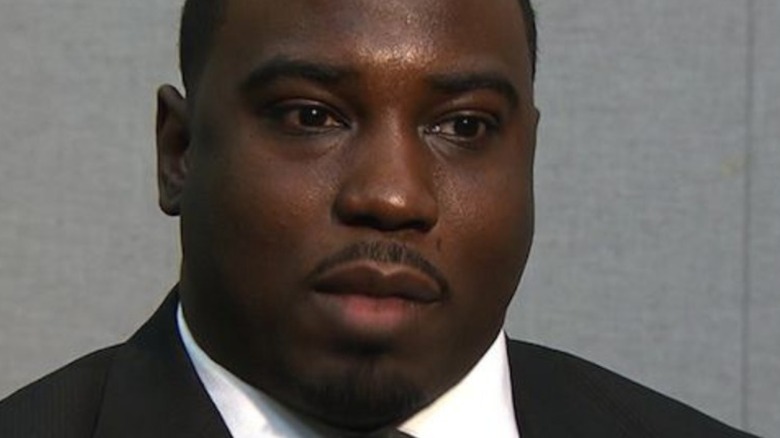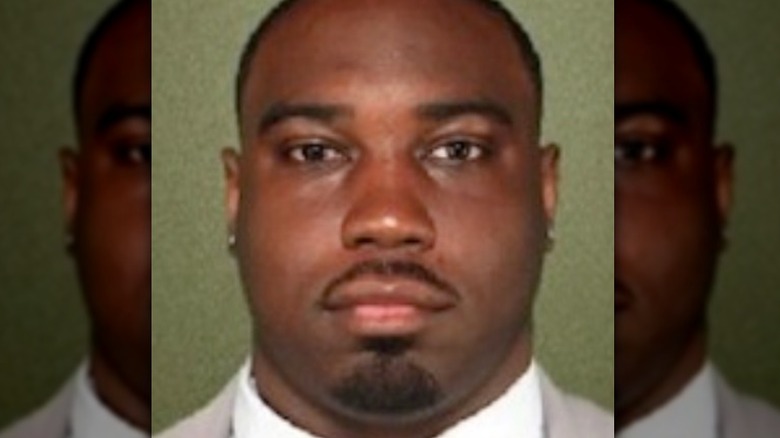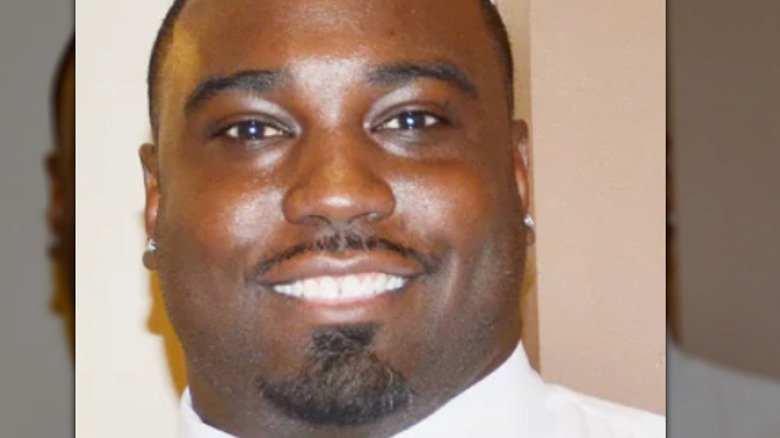What Dwayne Goodrich's Life In Prison Was Really Like
The Dallas Cowboys were thrilled to land Dwayne Goodrich during the 2000 draft. He was the perfect replacement for Deion Sanders, one of those famous athletes who retired too late. "We had Dwayne Goodrich targeted very early in this process," the team's coach told The Oklahoman. "In my wildest dreams, I really did not believe that he would drop to us. I'm very excited." But it wouldn't be long before the Cowboys' jubilation turned to despair.
Sanders' athletic inflictions had led to the former NFL star having to have his toes amputated. Goodrich's injuries weren't so severe, but they plagued him from the get-go. As a result, the athlete didn't make his pro debut until the ninth game of his first season. By 2002 Goodrich was relegated to the sidelines as a reserve due to continuing injuries. A year later, his NFL days were over for good after the Cowboys dropped him like a hot brick following a fatal hit-and-run.
ESPN reports that Goodrich was charged with manslaughter after killing two men, injuring another, and fleeing the scene in January 2003. The three victims were pulling a man from a burning car wreck when Goodrich barrelled into them and immediately sped off. He claimed he hadn't seen the accident until it was too late. The jury disagreed. AP reported that he was convicted of criminally negligent homicide, sentenced to seven-and-a-half years, and fined $20,000. So, what was Goodrich's life in prison like?
Dwayne Goodrich kept his head down in prison
The former athlete swapped his mouthguard and jockstrap for a mop and jumpsuit and started work as a chapel janitor. "When I was in prison," he told The Dallas Morning News, "these young black men looked up to me and said, 'You played for the Cowboys. You don't have to do anything in here." However, Goodrich didn't expect special treatment because of his NFL days; he kept his head down and paid props where props were due. He admitted that his driving force became preventing other young Black men from making the same mistakes as him. "I just wanted to be a role model in there," he said. "It was amazing how many people looked up to me."
Goodrich confessed that his brain was his worst enemy behind bars. "It's hard, but I try not to replay what happened over and over in my mind," Goodrich told the Dallas Observer. "I used to think about suicide, and a part of me will always be depressed. But I don't need to punish myself forever," he conceded. Goodrich was released on parole in 2011 after serving six of his seven-and-a-half-year sentence. Since his release, he has focused on making his future count.
Dwayne Goodrich has become an inspirational speaker
Dwayne Goodrich struggled with his emotions and mental health at times, but he's determined not to dwell on the past and make the future count. "I don't think about the things I lost," Goodrich told The Dallas Morning News. "People say to me, 'You lost everything.' But I have to remind myself that I cost two lives." Goodrich did a lot of thinking during his time in Prison. He also worked hard to help set other incarcerated young Black men on the right path.
Now that he's a free man again, Goodrich uses his epic rise and fall from grace as a cautionary tale to help prevent others from making the same mistakes. He's become an inspirational speaker and launched the Dwayne Goodrich Foundation, which mentors young athletes and intervenes to help at-risk kids. According to The Texas Speakers Bureau, any profits Goodrich makes from public speaking "go toward the victims of the accident, supporting education, and creating scholarships for children with incarcerated parents."
"I left the scene [of the accident] for selfish reasons," Goodrich admitted during a 2012 talk. "I saw everything I worked for flash in front of my face. And didn't want to deal with the consequences of what I did." He laid out the bad choices that led to "the worse decision of my life." While he admits he failed as a man, he explained, "you can get knocked down, but it's what you do when you get back up."



